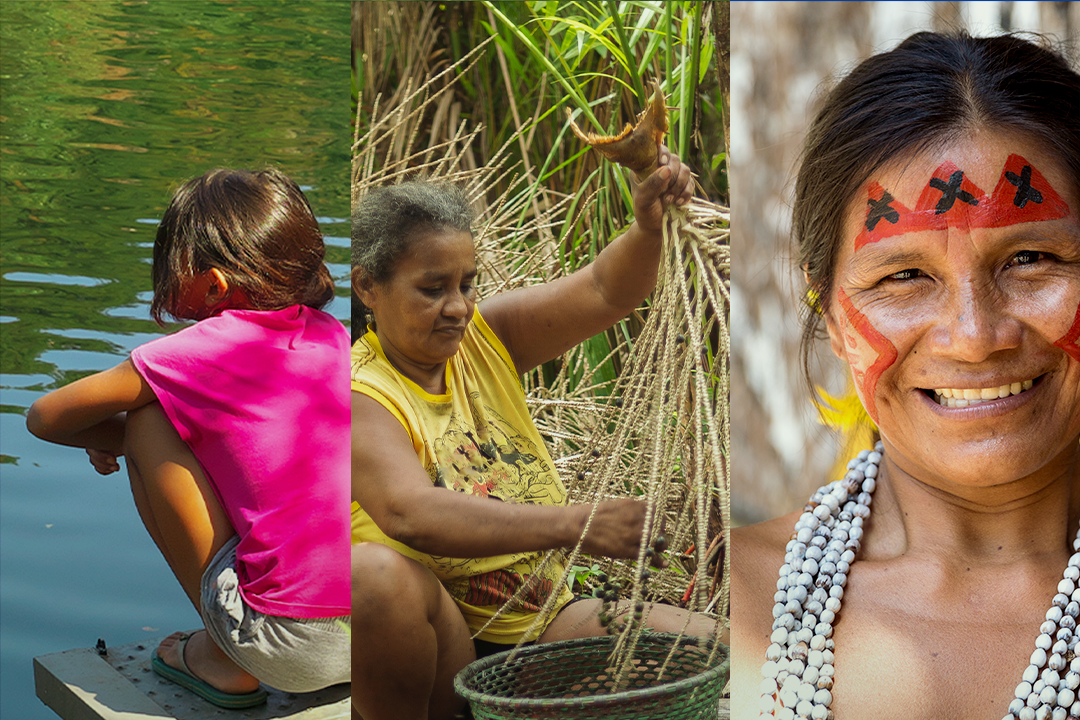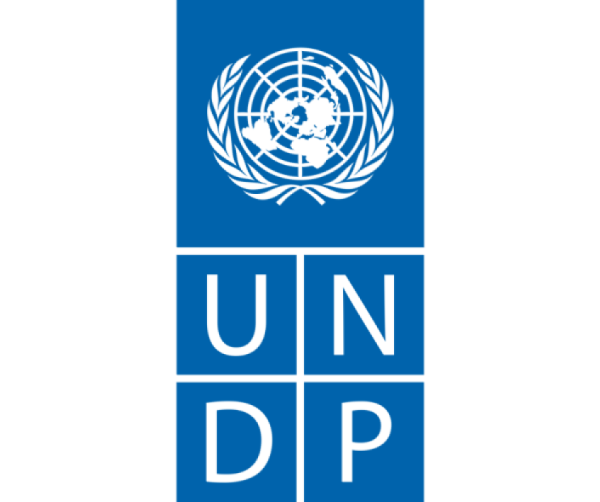Amazon’s guardians: Women pioneering forest conversation in Brazil
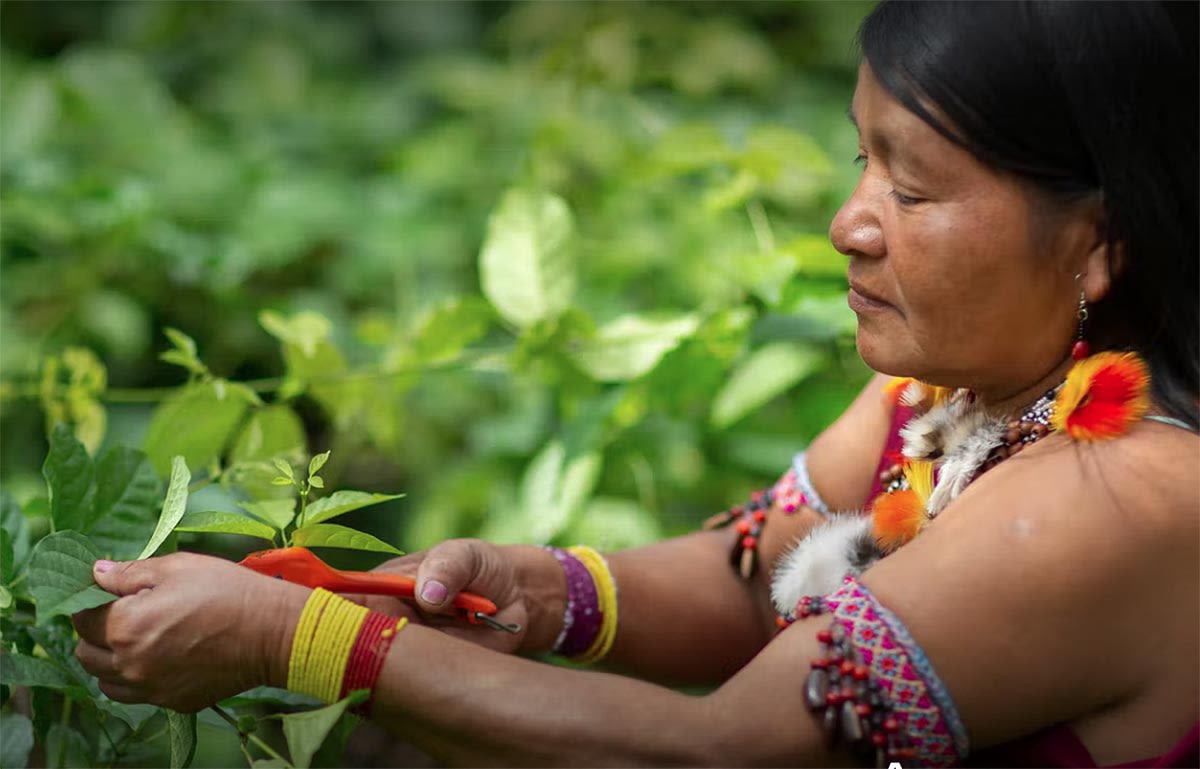
In the heart of the Amazon rainforest, amid a mosaic of rural landscapes and local realities, women emerge as the guardians protecting forests, rivers, and territories. Their wisdom and labor, whether borne from Indigenous or quilombola heritage, riparian legacy or agrarian work, weave a delicate web of conservation knowledge. Through nurturing medicinal plants, creating seed banks, and tending vibrant home gardens, they help to safeguard the unique biodiversity and forest landscapes of the Amazon biome.
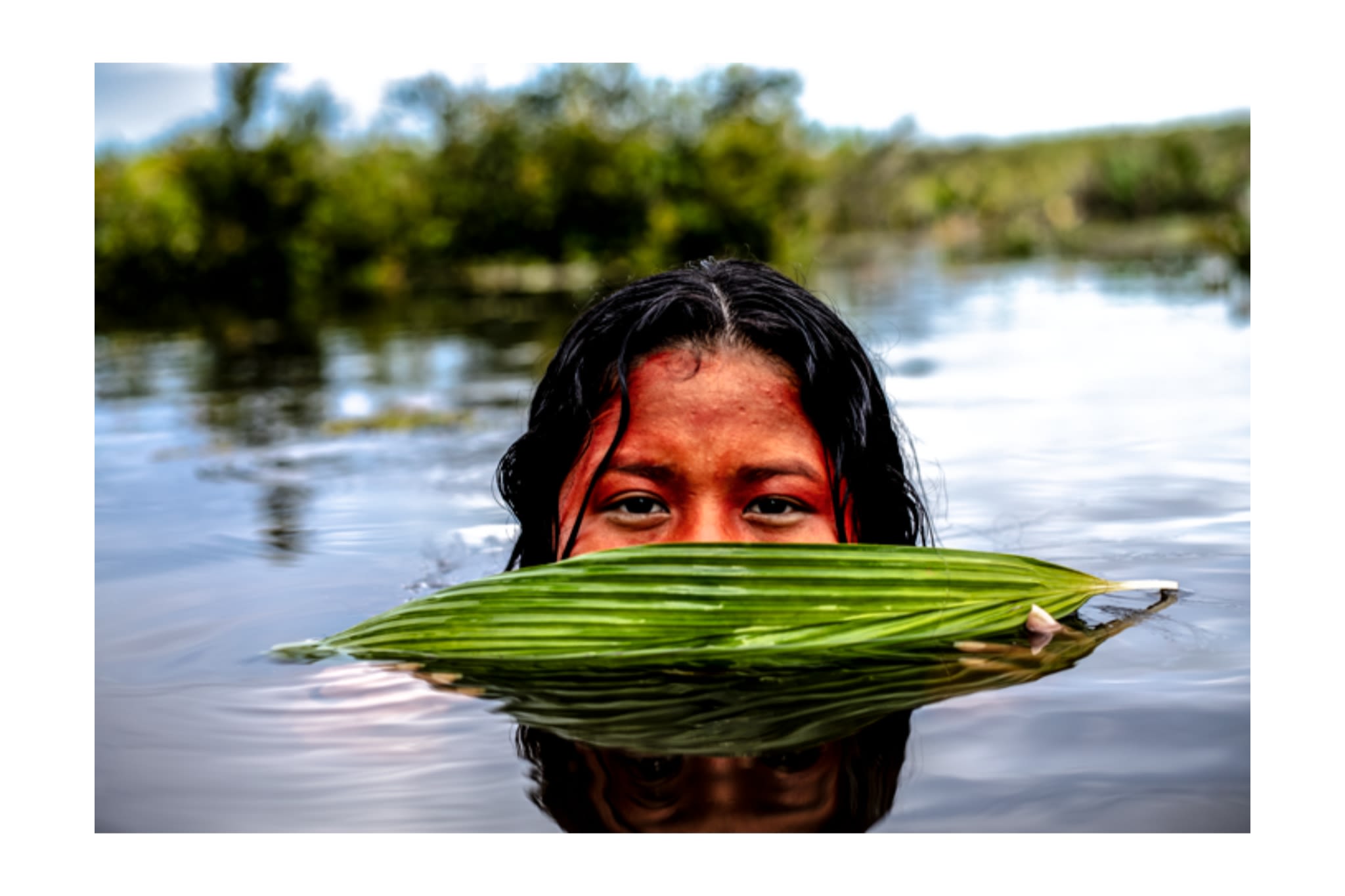
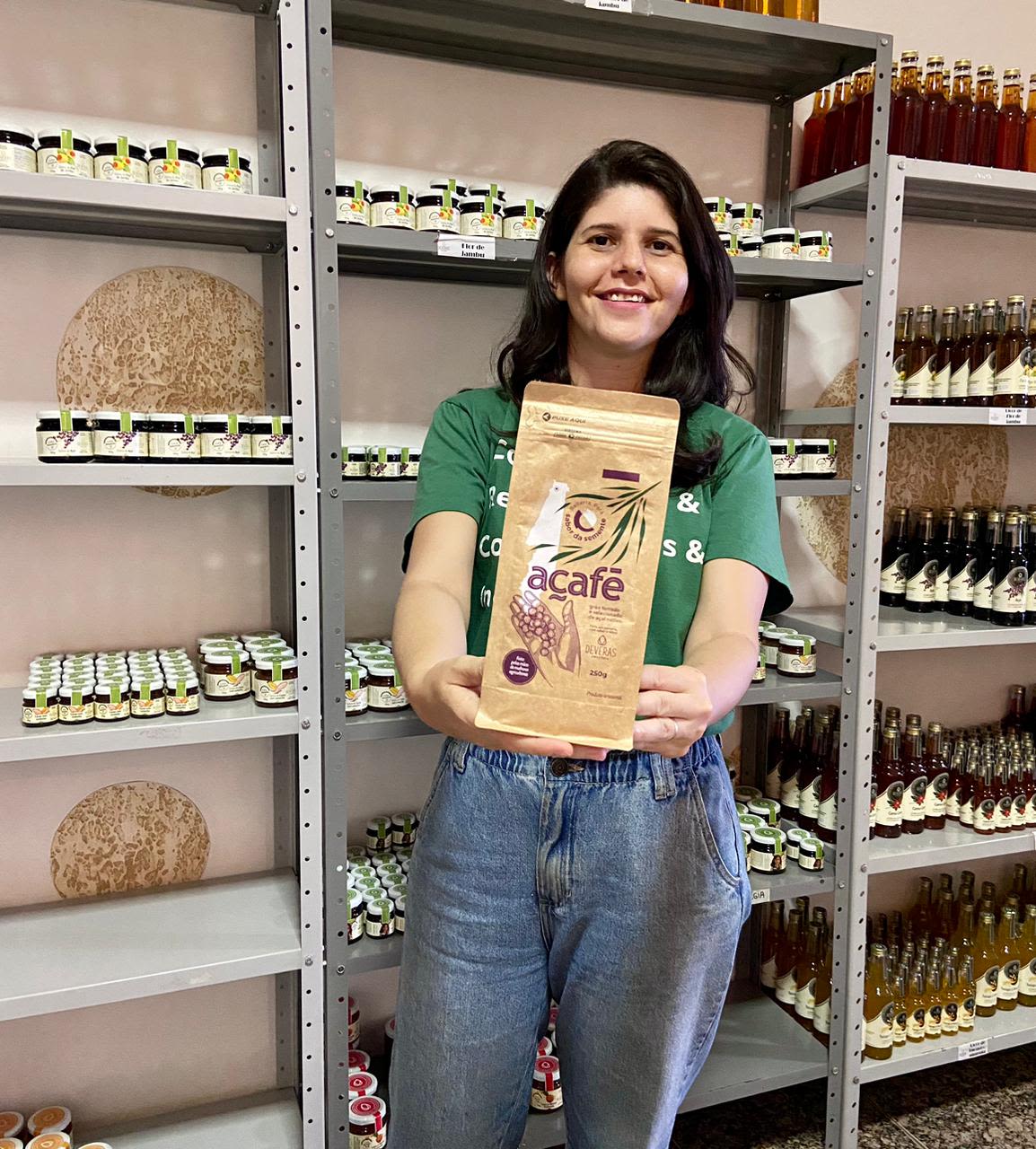
Valéria Mourão, with expertise in biotechnology and a passion for preserving the Amazon, founded "Deveras Amazonia" in 2018, a socio-environmental enterprise dedicated to producing jams and liqueurs from indigenous fruits and plants while supporting indigenous communities and sustainable livelihoods.
Valéria Mourão, with expertise in biotechnology and a passion for preserving the Amazon, founded "Deveras Amazonia" in 2018, a socio-environmental enterprise dedicated to producing jams and liqueurs from indigenous fruits and plants while supporting indigenous communities and sustainable livelihoods.
A journey of purpose: A women-owned social enterprise in the Amazon
Valéria Mourão's journey began with a dream: Driven by a profound sense of purpose, she envisioned a social enterprise that would help communities and add value. Holding a PhD in biotechnology with post-doctorate in natural resources of the Amazon, Valéria has been researching native plants and herbs of the Amazon for more than 10 years.
In 2018, she founded "Deveras Amazonia," a socio-environmental enterprise focusing on the production of jams and liqueurs, with a mission to celebrate and sustain the bountiful treasures of the rainforest.
Supporting Indigenous communities in their battle to preserve the forest
Valéria and her team of 19 women expertly process an array of Indigenous fruits and plants including açaí, camu-camu, pupunha, cupuaçu, chestnut, and Victoria amazonica. Through their efforts, they craft exquisite liqueurs, jams, and preserves, championing both cultural heritage and sustainable livelihoods.
"As a female entrepreneur in Brazil, the journey is daunting, especially in the Amazon—it's more than just entrepreneurship; it's about resilience. We grapple with challenges that extend far beyond mere commerce; it's about supporting the Indigenous communities in their battle to preserve the forest and their sustainable way of life. True entrepreneurship isn't just about profit; it's about embodying our beliefs. We navigate these waters with dedication, inclusivity, and empathy—qualities inherent to women." Valéria's conviction rings clear.
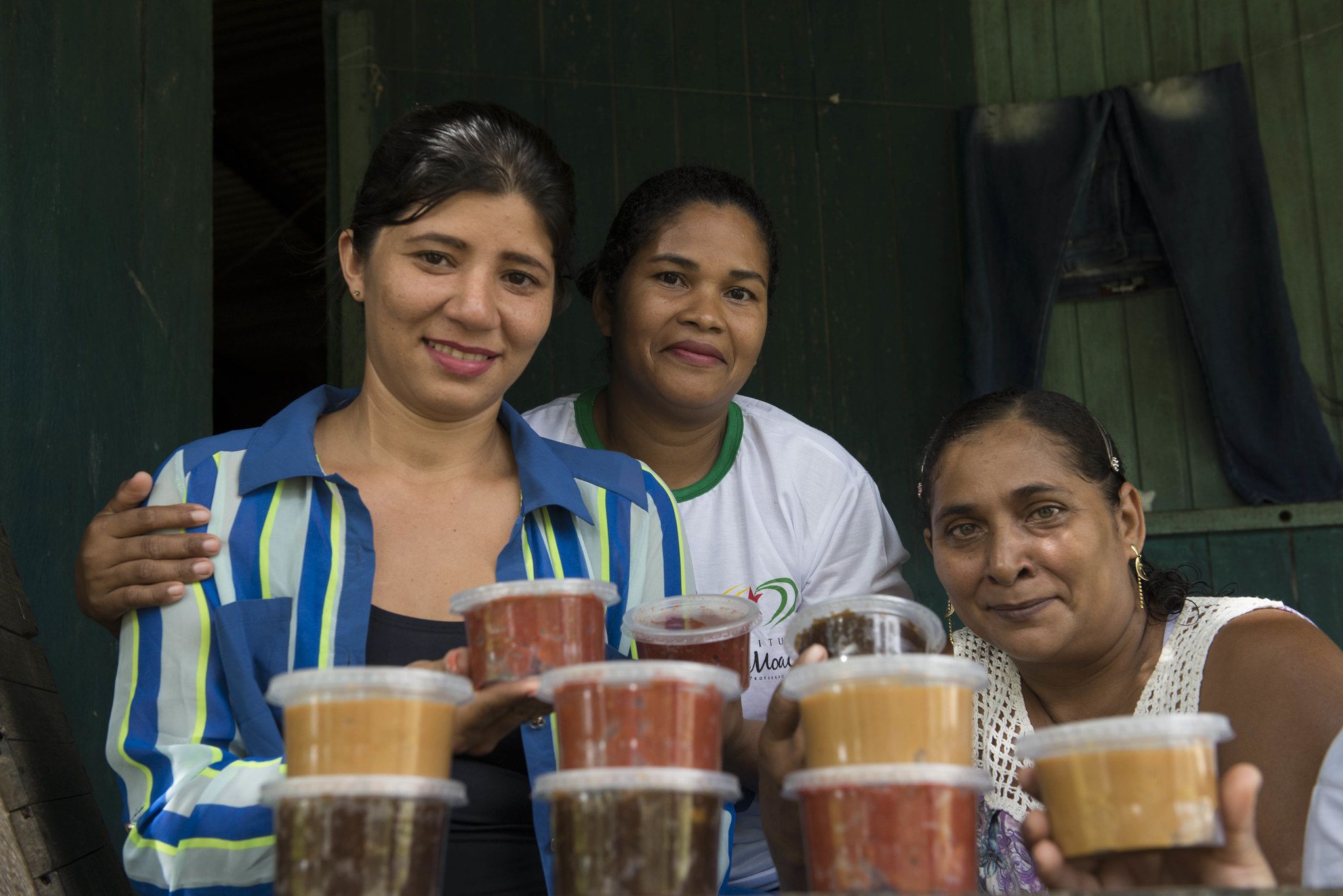
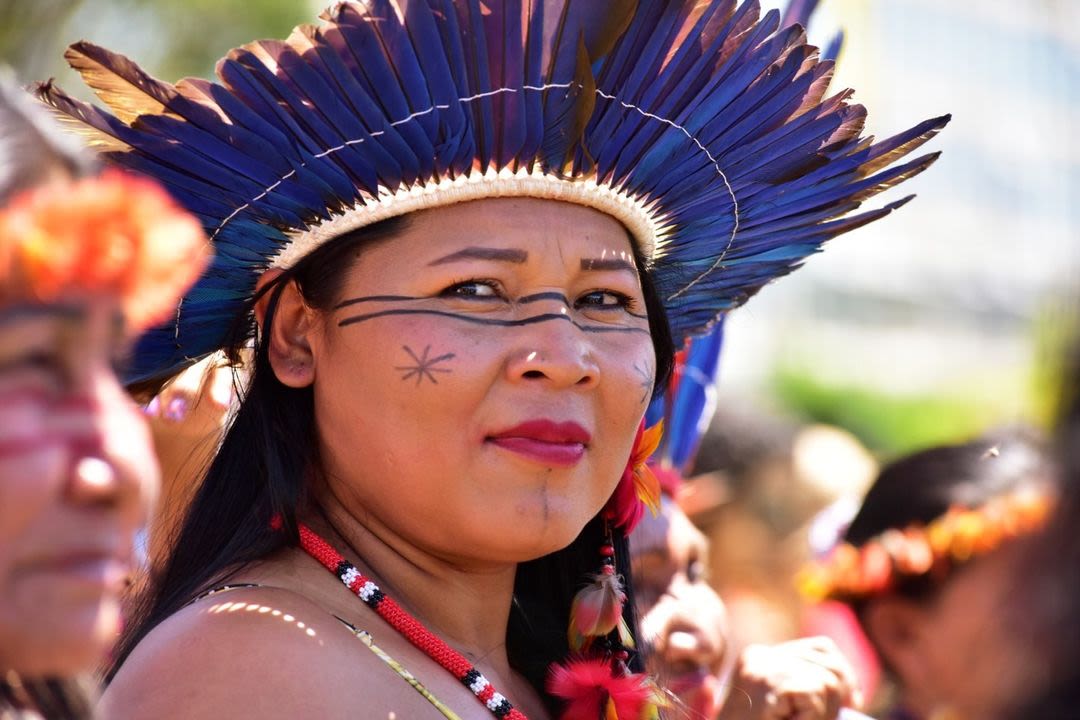
Gender disparities in rural agriculture
Local initiatives like Valéria’s business are even more important for local women, as they can generate income to support themselves and their families, thus reducing their reliance on traditional gender roles and external support. Challenges faced by women include the underrepresentation of women in records of rural property ownership, and the presence of socio-economic and cultural barriers.
Women represent around 40 percent of agricultural labor in developing countries, according to the International Labour Organization (ILO). Data from the Brazilian Institute of Geography and Statistics (IBGE) reveals that rural property ownership is predominantly held by men, comprising 81 percent, while women account for only 19 percent, equivalent to approximately 946.000 female farmers. Among the 5.1 million producers identified by IBGE, an analysis of agricultural and extractivist operations demonstrates that establishments with Indigenous producers exhibit the highest rates of female participation, reaching 25.90 percent. The data also underscores the considerable distance yet to be traversed in achieving gender equality in rural areas and forested regions in the Brazilian Amazon.

Charting paths towards gender equality
Nonetheless, initiatives like the Floresta+ Amazon project have played a pivotal role in reshaping the lives of women and those dependent on their unwavering resilience and commitment. The project not only compensates individuals safeguarding and revitalizing the forest but also actively contributes to reducing greenhouse gas emissions. It implements strategies for payments for environmental services and fosters local initiatives in collaboration with communities and partners. Valéria Mourão with her socio-environmental enterprise is one of the beneficiaries of the Floresta+ Amazon project through its Innovation Modality.
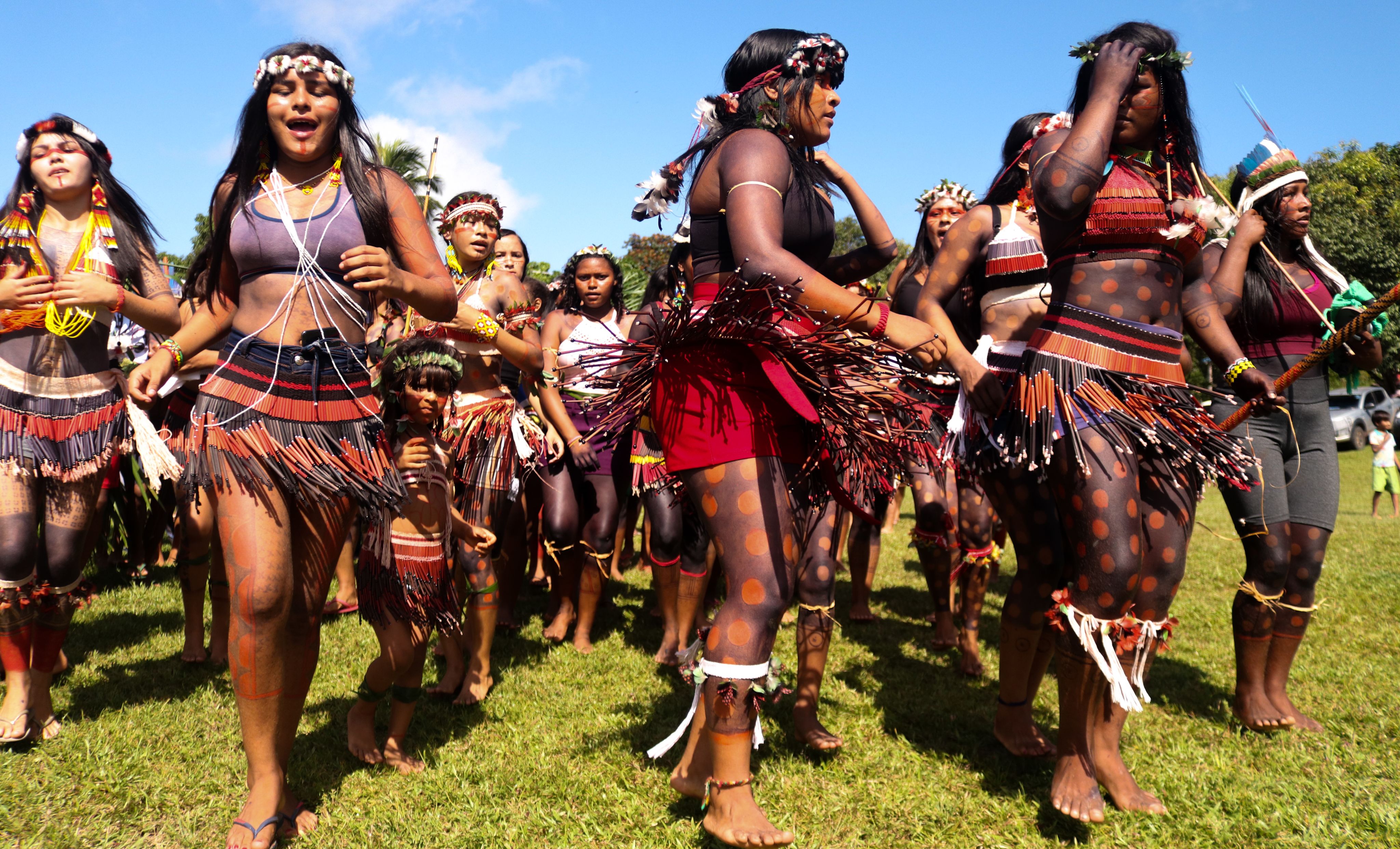
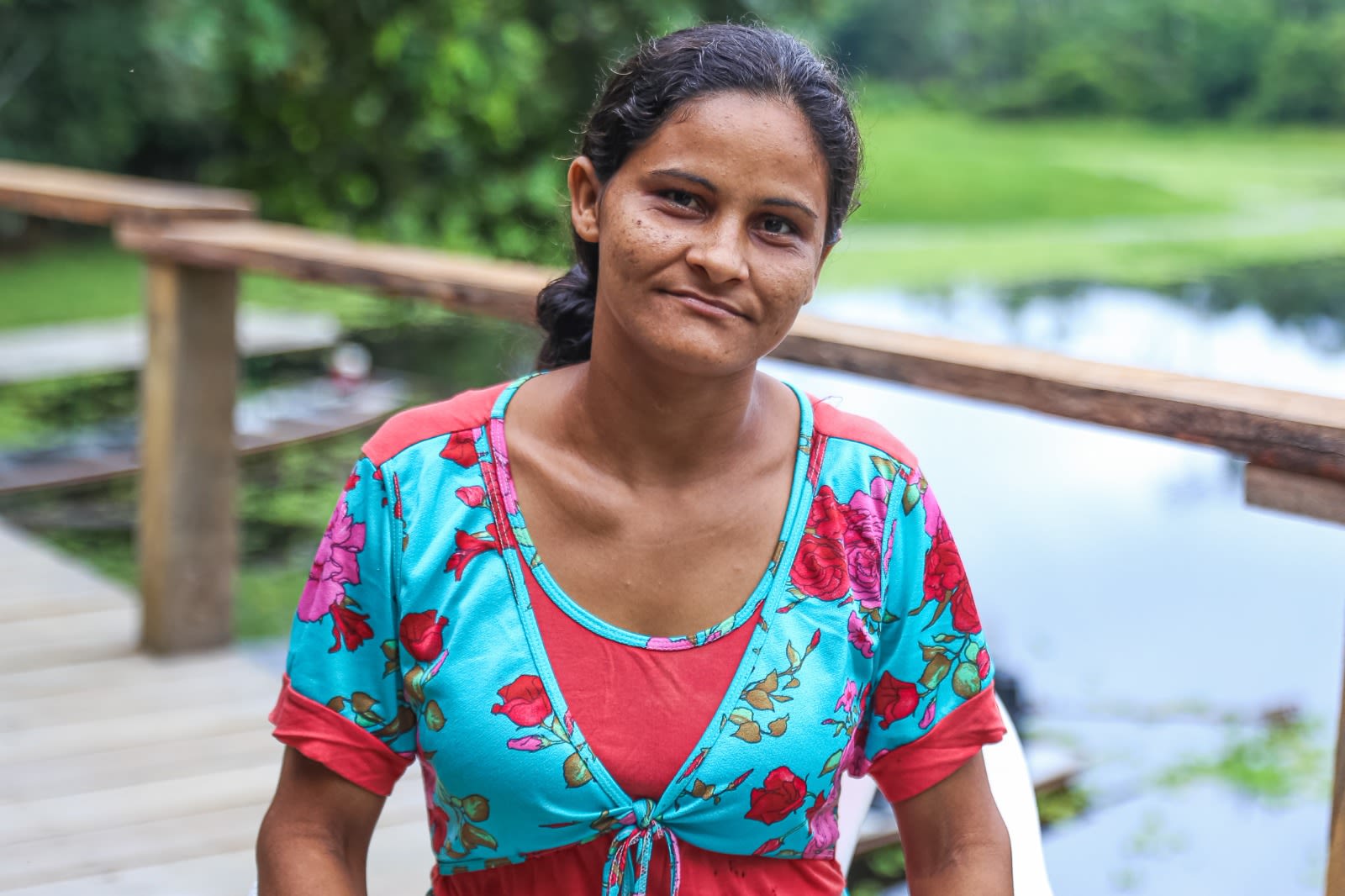
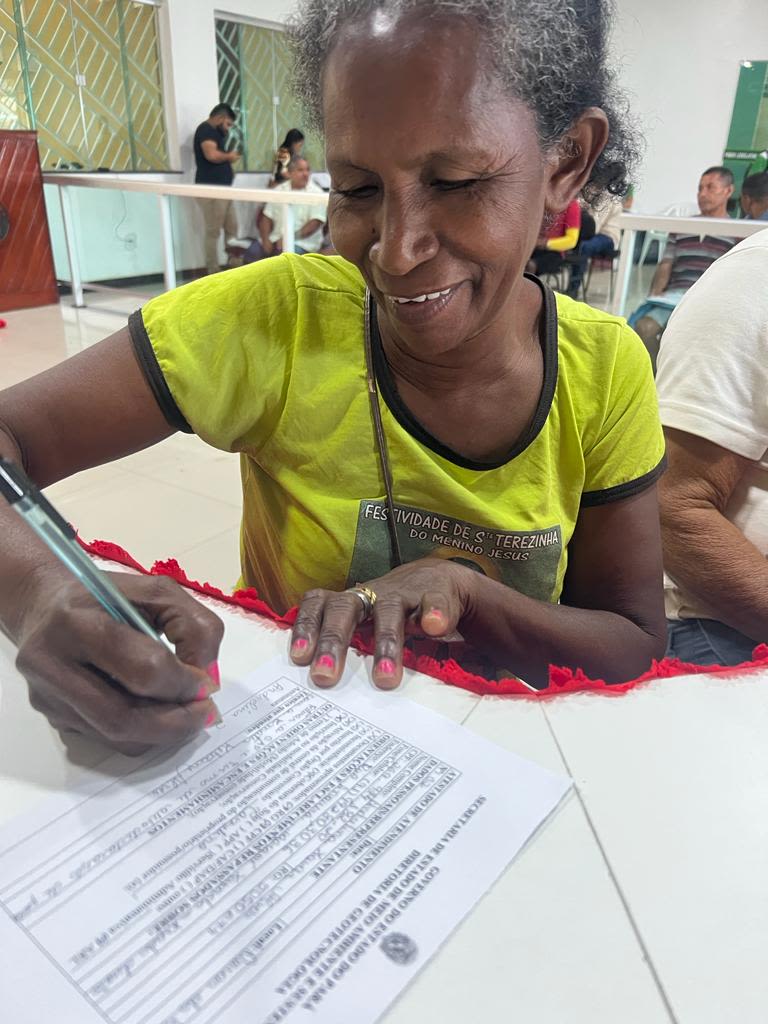
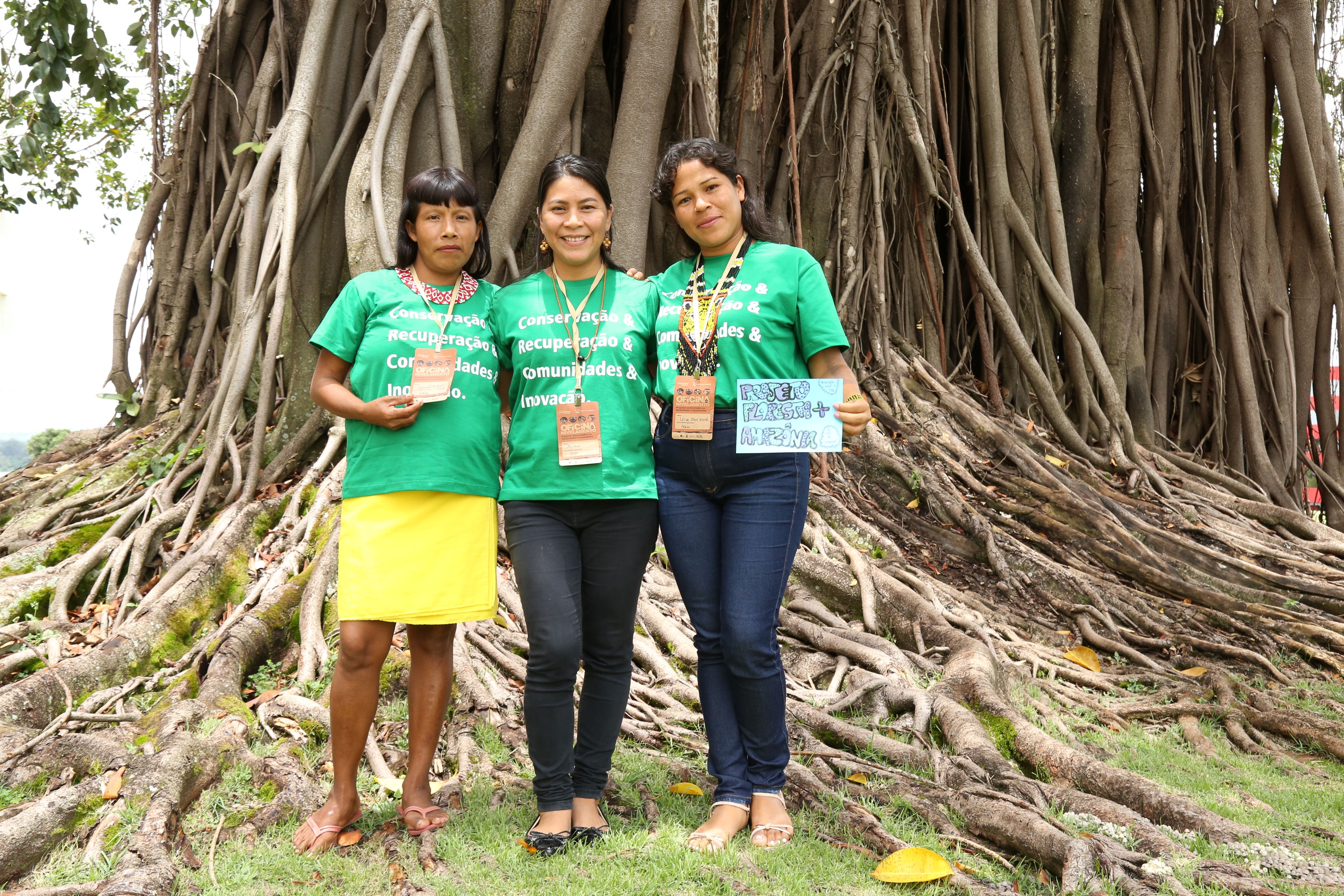
“We need to keep the Amazon alive and standing”
Within the lush embrace of the Cachoeira do Aruã community in Pará, agronomist Ana Paula Oliveira reflects on the timely intervention of the project that safeguarded nearly 26 hectares of pristine native vegetation, surpassing legal mandates. "The project came to demonstrate that we don't need to deforest or cut down trees to plant. We need to keep the Amazon alive and standing.” Today, her land remains an oasis of conservation, a testament to the project's unwavering support.
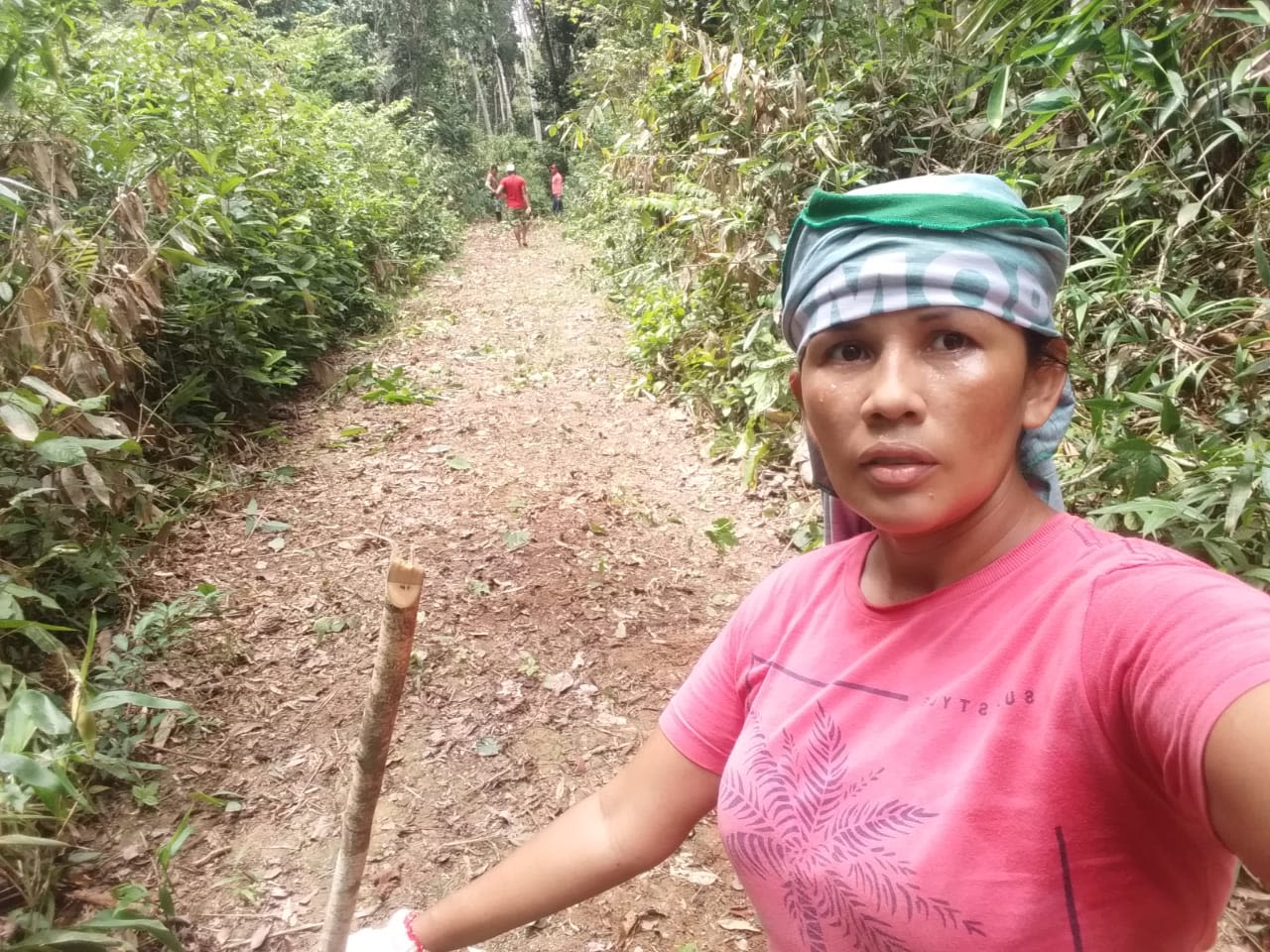
Agronomist Ana Paula Oliveira emphasizes the importance of preserving the Amazon by reflecting on a project in the Cachoeira do Aruã community in Pará that protected nearly 26 hectares of native vegetation.
Agronomist Ana Paula Oliveira emphasizes the importance of preserving the Amazon by reflecting on a project in the Cachoeira do Aruã community in Pará that protected nearly 26 hectares of native vegetation.
The Innovation Modality of the Floresta+ Project, dedicated to fostering inventive approaches for the conservation and preservation of native habitats, stands as a beacon of inclusivity and empowerment. With a resounding 63 percent female participation rate in its training and solution-generation events, it champions gender equality and diversity. Among the 12 businesses supported by this initiative, half are spearheaded by women, while 67 percent of those selected for the acceleration process are led by female entrepreneurs. Furthermore, the second project call saw a significant increase in female beneficiaries, rising from 30% in the first call to 48%, signaling successful efforts to boost gender diversity in project participation. These remarkable statistics underscore the pivotal role women play in driving innovation and sustainability forward within the project's framework.
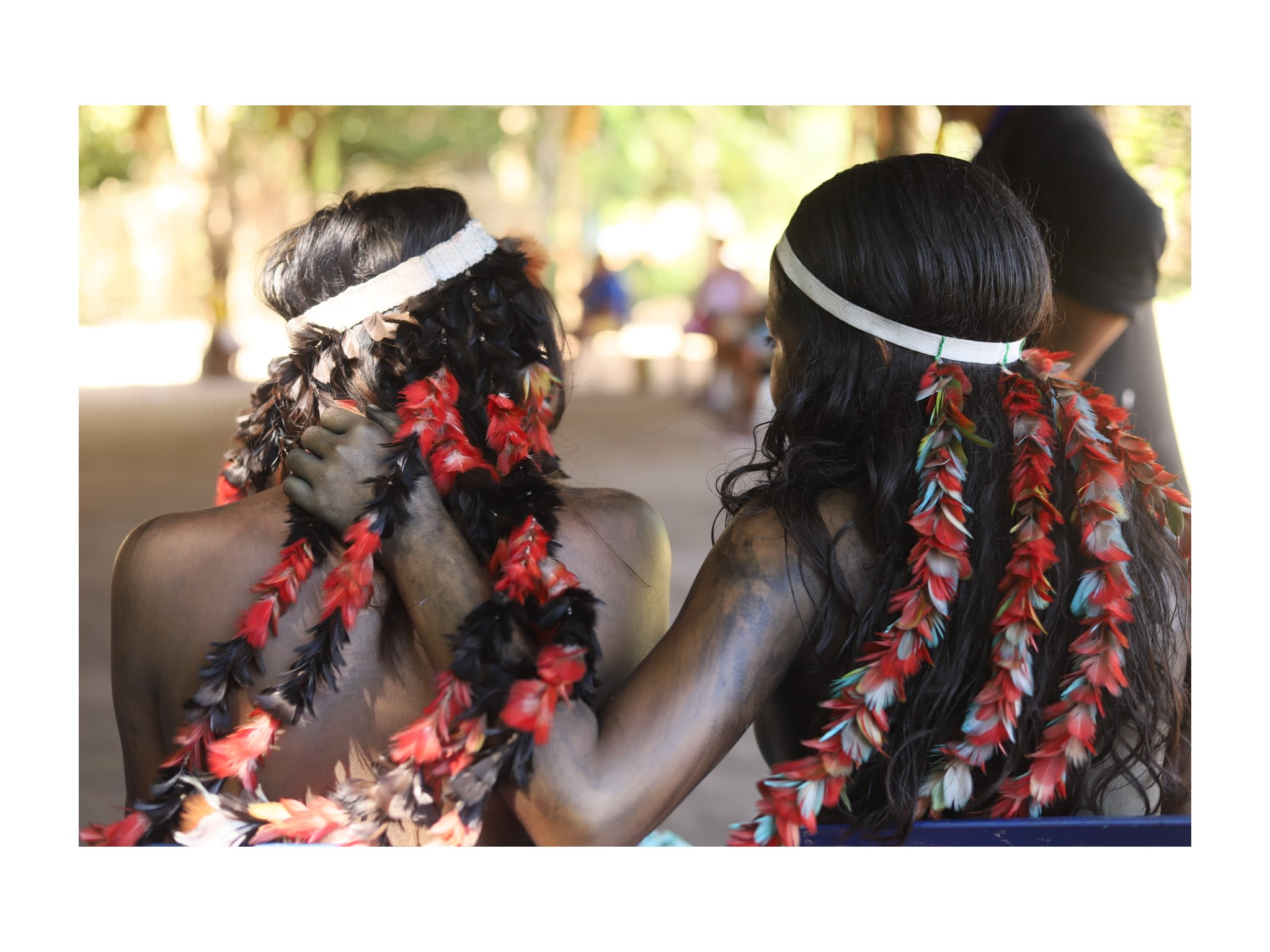
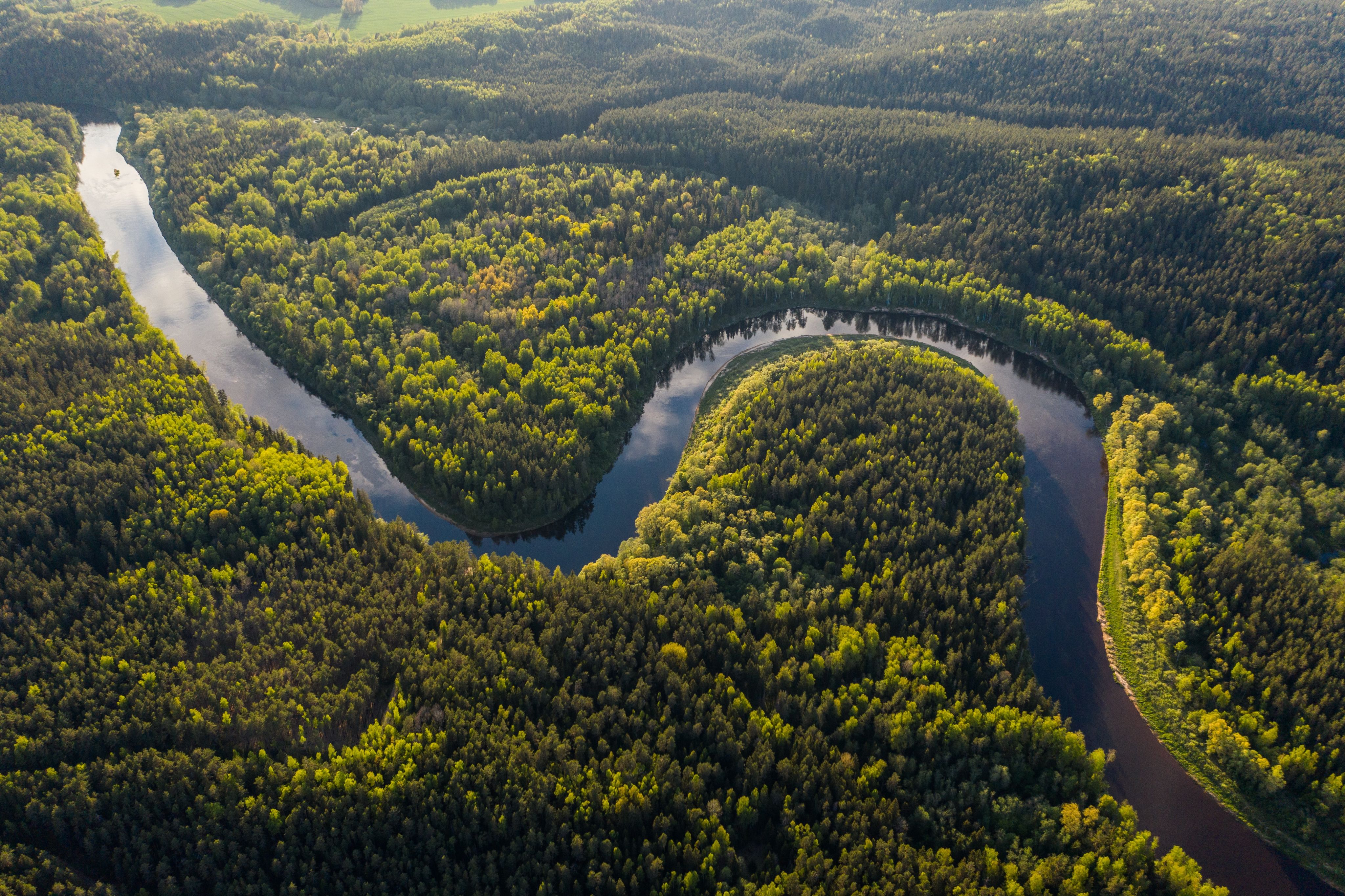
Photo by Ivars Utināns on Unsplash
Photo by Ivars Utināns on Unsplash
Footnotes:
Learn more about the Floresta+ Amazon Project: www.florestamaisamazonia.org.br
Support for women is outlined in the 2030 Agenda for Sustainable Development, specifically in SDG 5, as gender equality is a basic human right and a necessity in the pursuit of a sustainable world. These concepts are solidified in the Floresta+ Amazon Project, the result of a partnership between the Brazilian Ministry of the Environment and Climate Change (MMA) and UNDP Brazil, which compensates those who protect and restore the forest, with support from the Green Climate Fund (GCF).
The project compensates those who protect and restore the forest and contributes to the reduction of greenhouse gas emissions, focusing on strategies for payments for environmental services and supporting local initiatives defined by communities and developed with their partners.
By 2026, the initiative will recognize the work of farmers, Indigenous peoples, and traditional peoples and communities, as well as strengthen the National Strategy for REDD+ and the sustainable development of Legal Amazonia, with resources from the GCF.
The project has demonstrated progress in implementing gender equality guidelines through its Gender Action Plan. The modality focusing on Indigenous Peoples seeks to strengthen environmental and territorial management in Indigenous and traditional communities, with women leading proposal development in 32 percent of the projects.
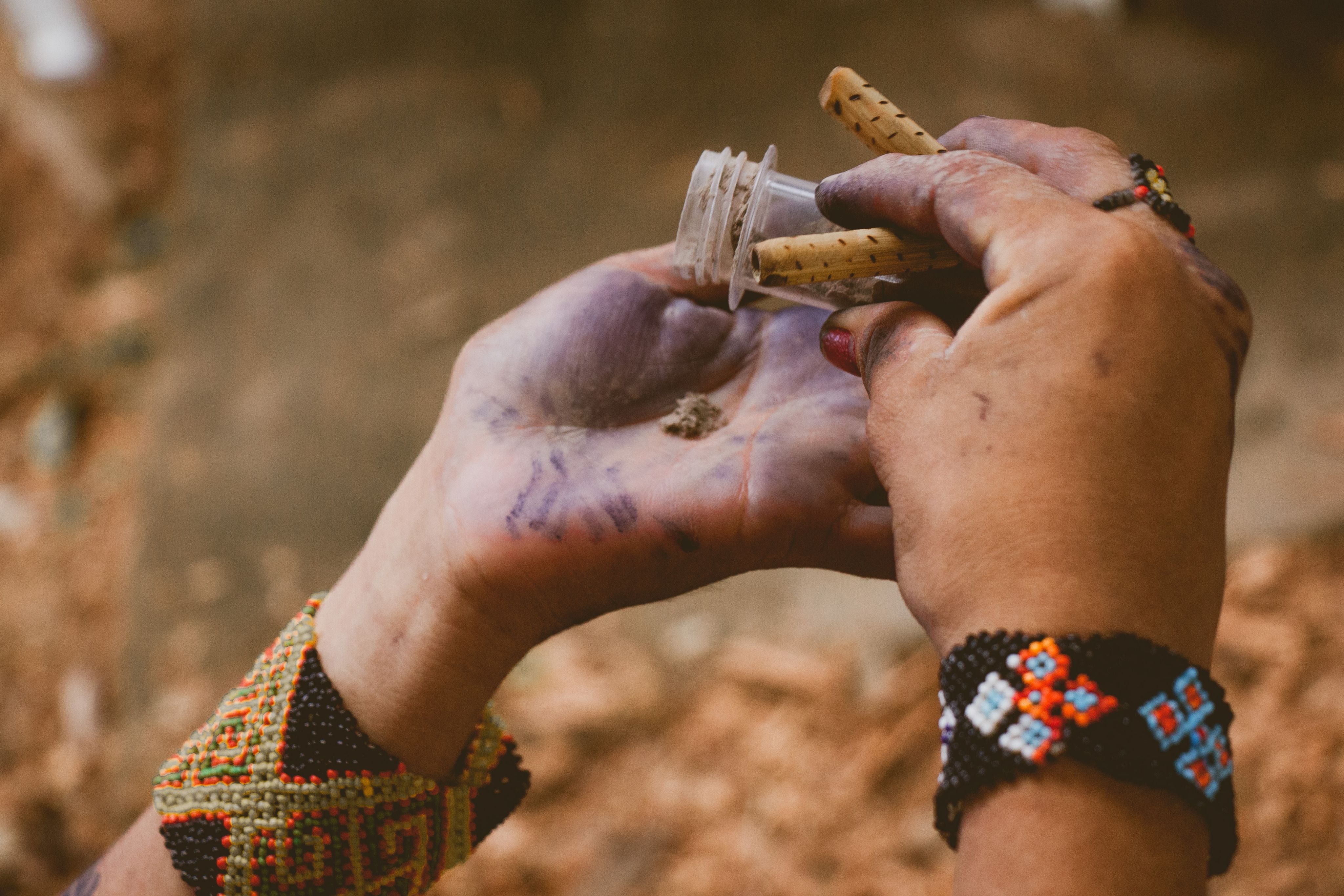
UNDP Climate & Forests assists countries and stakeholders to implement the Paris Agreement by reducing deforestation, forest degradation and promoting sustainable development pathways.
Text by: Daniel Ferreira / Floresta + Amazon Project, UNDP Brazil
Photography: Acervo Pessoal, Genilson Guajajara, Marcos Santos, Rossana Fraga, Acervo PNUD/Floresta+, Acervo UN Brazil and Reproduction/ Conservation International.
Copy editing, visual layout: Roxana Auhagen, UNDP C&F
Social media assets: Sila Alici, UNDP C&F
